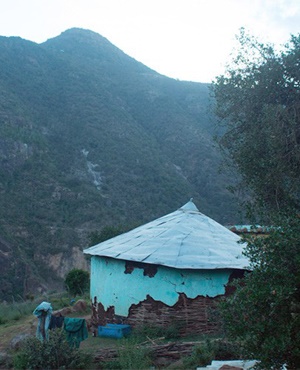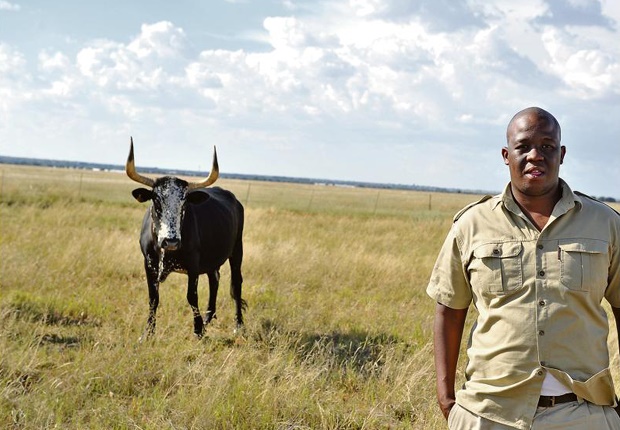The motion in Parliament on Tuesday to go ahead with amending the Constitution to expropriate land without compensation led to a national debate.
Some constitutionalists believe it will be highly controversial to deprive people of their property rights, the agriculture sector expressed concern about how this will influence farmers and food security, and ordinary citizens say they fear the confiscation of their property under such an amendment.
But advocates of land expropriation say that this is an important step in redressing past injustices and redistributing the means of production to those who were dispossessed in the past.
Here is what experts, political commentators and readers had to say.
Mcebo Dlalmini: With Zuma gone, the time is ripe for land expropriation
South Africa has seen more than three heads of state in its 24 years as a democratic country but the conditions of the people have not changed substantially. Although some strides have been made the hierarchies that existed during apartheid and former president Thabo Mbeki's tenure have not been altered. There is still a small group of people that happens to be white that continues to hold all the wealth while the black majority of the country continues to languish in poverty.
This requires us to think critically about what ought to be done to ensure that this brutal reality is changed. The state of affairs invites us to think about the problem as structural and not necessarily as an incident of the structure.
Read more.
Mathole Motshekga, ANC: Land dispossession was the original sin
The triple challenge of poverty, unemployment and inequality which degrades and dehumanises black people in general and Africans in particular is the direct result of the original sin of land dispossession.
The shacks that have become the permanent features of the City of Cape Town, the seat of Parliament, which are frequently catching fire or are swept away by floods as and when it rains are the exhibits of the original sin that President Ramaphosa speaks of.
The concurrence of all progressive political parties represented the rebirth of South African constitutionalism and Parliament as envisaged by Nelson Mandela and validated President Ramaphosa's new dawn vision as the clarion call of the African (or 21st) century.
Read more.
Ben Cousins, PLAAS: Effective land reform must reduce poverty and inequality
The raging controversies surrounding the ANC’s decision on expropriation illustrate the symbolic power of the land question within the contested politics of the country. One way to read the decision is that it is an attempt to head off the challenge from the left, in the form of the Economic Freedom Fighters. But it is also clear that “land” symbolises wide discontent within the populace at large over the slow rate of change in post-apartheid South Africa.
In the background, fuelling the fires, are the most intractable problems facing South Africa: massive levels of unemployment, structural poverty and gross inequality. The most important question facing land reform is how it can contribute to increasing employment, incomes and livelihoods among the 55% of the population who live beneath the poverty line.
Read more.
Annelize Crosby, Agri SA: It's a case of basic human rights
Any deprivation of property without compensation constitutes a very serious breach of an individual’s rights. Property rights are a fundamental human right that is recognised as such by most international human rights conventions. Bear in mind that section 39 of the Constitution stipulates that when courts interpret the bill of rights, the values of an open and democratic society must be promoted.
Courts must also consider international law as reflected in, among others, the international conventions on human rights. In most modern jurisdictions, land owners have a constitutional right to compensation.
Terence Corrigan, IRR: The EFF's proposal could affect the poor the worst
The success of land reform policy should be measured by the extent to which it improves the lives of its beneficiaries, and enhances the economy as whole. Policy that does so is the surest means of truly transforming the country.
South Africa needs a rejuvenated land reform programme that incentivises investment, encourages the entrepreneurial spirit and gives new entrants the keys to success – support, financing and title to their land. This would be a decisive turn away from the abuses of our past.
The EFF's reported resolution would do the opposite.
Read more.
Robert Traydon: There are more effective ways to redistribute land
President Cyril Ramaphosa wasted no time in reaffirming his stance on land expropriation without compensation during his State of the Nation Address (SONA).
Swift assurances followed that it would be done in such a way that agricultural production and food security would not be compromised.
A credible way for our president to achieve this would be to expropriate unused or derelict land owned by municipalities, state-owned enterprises and other government institutions – especially land in the vicinity of urban areas – for the purpose of building new suburbs and micro-business districts for all those people who are still awaiting RDP homes.
Read more.
What readers have to say:
I am 100% behind the above mentioned subject.
If the process is dealt with correctly, it could be done successfully. I believe we have the necessary constitutional infrastructure/capacity to deal with the issue.
It's not a matter of revenge or hating white people, it is about black consciousness. Africa is where the world started. It is 1000's of years overdue that we start getting the necessary dignity. - Floreinach Geduld
The land audit that was done does not specify how much land is owned by the state at present, it only concentrated on land physically owned by the different ethnic groups. How then does expropriating land from everyone, including black property/home owners and giving it to the state rectify the land ownership issue?? Smacks of politicking to me. Too much power in the hands of a few, especially in Africa, smell of big trouble. - Kevin Mattheus
All the other myriad issues aside, how exactly will allocating, or more likely renting, a vacant plot of land to your average South African Joe suddenly alleviate poverty? Unless there is a magic money making machine built into each plot, this isn't going to solve anything. It's not like they could even sell it since it will all be state owned. - Justin van Noort
Read more.
The penny has not yet dropped for most South Africans. When they say land – it is all land. Your house in the suburbs, Mercedez, Toyota, BMW and Volkswagen’s land where their factories are. All the shopping malls. Not only farm land. - Jenni Rogers, Middelburg
With your stature, Mr Malema, it should be easy to get facilities where aspiring farmers can be trained. If you do not train people in modern farming, are you just following Mr Mugabe’s example? He got rid of the white farmers in Zimbabwe and got himself some property. That made good economic sense to him, but got Zimbabwe into serious economic trouble. - Gerard de Vos
Read more.
The Khoi-San are (and still remain) the original occupants of the land, which was first expropriated from them without compensation by the invading Bantu tribes, which happened prior to the arrival of any European. - Julian Peters
Nearly every South African citizen shack dweller has another genuine home somewhere in another part of the country, often quite beautiful and lush, but without any prospect of a job. But the sprawling masses of shacks are largely illegals and should therefore not be seen as landless people at all. The other factor is when you have given all these people the new confiscated land, are they going to pay the exorbitant rates we are being levied. We all know not, so here we go, more bankrupt municipalities. - Andy Dott
In 24 years the ANC has failed to capitalise on land reform based on the current system. Reason for this is that the program is run by corrupt, lazy and inefficient officials. Redistributed farms lie fallow and two agricultural jewels viz Zebadelia and Sepokoe Tea Estates have become disasters. Learn from history. If they cannot get it to work now then how are they going to get it to work in the future? Who will benefit anyway? Only crooked politicians and officials. - Kevin TownsendSend us your thoughts on the topic
Participate in the conversation by sending us your article submissions of no less than 200 words or email us at voices@news24.com.





























